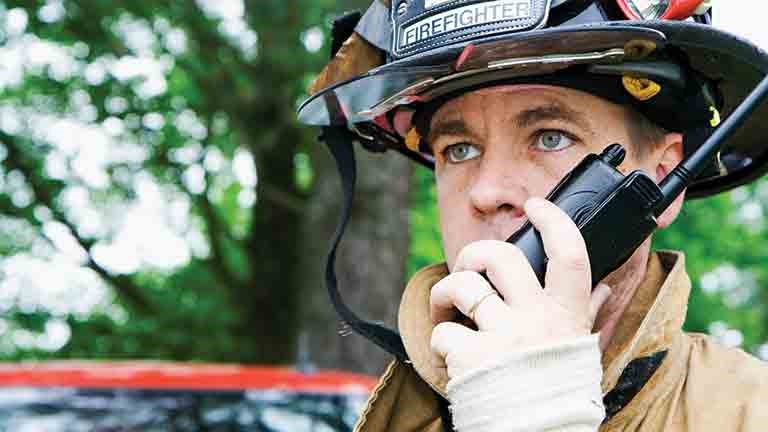TV Repack Causing Interference to Mobile Comms in Major Cities, LMCC Says
DTV interference discussions begin between FCC, mobile comms group

WASHINGTON—The Land Mobile Communications Council (LMCC) and the FCC met on Oct. 22 to initiate discussions on what LMCC describes as “multiple incidents” of co-channel and adjacent channel interference to land mobile systems from newly authorized digital TV stations that came about as a result of the TV repack, agreeing to begin identifying potential solutions.
According to an LMCC filing to the FCC from August, there have been multiple instances of new DTV stations causing harmful interference to Part 90 private land mobile radio stations (PLMR), rendering the stations “entirely unusable.” Private land mobile radio systems are used by companies, local governments, and other organizations to meet a wide range of communication requirements, including coordination of people and materials, important safety and security needs, and quick response in times of emergency.
LMCC says that such instances have occurred in Dallas, Houston, New York, Chicago and San Francisco, among others.
The two-year repack, which wrapped up in July forced nearly 1,000 U.S. TV stations to relocate their channel allocations as a result of the 2017 spectrum auction. This has caused two types of interference, according to LMCC: Co-channel interference from DTV stations operating in the 470-512 MHz band that had previously been allocated for PLMR use in major markets; then there is adjacent channel interference from DTV stations on Channel 14 impacting PLMRs operating in the UHF band below 470 MHz.
“The interference with what had been reliable communications endangers the safety of employees, disrupts operations at affected facilities and poses a major threat to public safety in certain instances,” the LMCC told the FCC.
As a result of its meeting with the FCC, LMCC is forming a Working Group that will collaborate with the FCC in identifying potential solutions.
LMCC President Klaus Bender says that some of these interference issues may be resolved by enforcing existing rules, but acknowledges that some will be more difficult because of the lack of spectrum alternatives for both land mobile and DTV licensees. However, he described the collaborative effort with the FCC as “a good start.”
Get the TV Tech Newsletter
The professional video industry's #1 source for news, trends and product and tech information. Sign up below.
